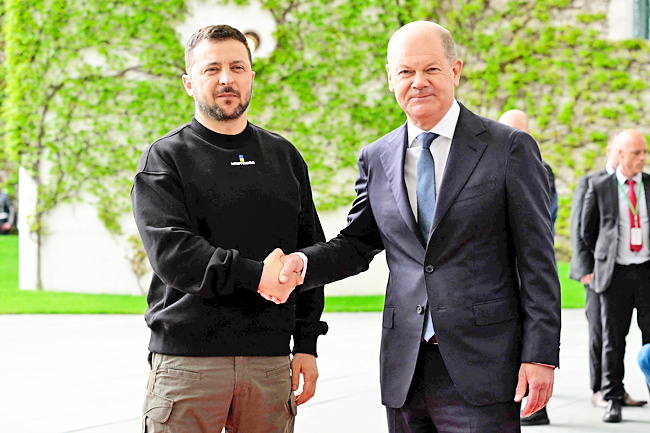Jelena Kecmanovic
THE WASHINGTON POST – I recently asked one of my patients if there was anyone he could call if he needed help, and he answered. “There’s nobody”.
His experience is not uncommon. As a clinical psychologist, I’ve noticed that we are becoming more and more isolated from one another.
In the most recent survey from the Pew Research Center, conducted in September, 42 per cent of United States (US) adults said they had felt lonely at least one or two days during the past week. Loneliness has been shown to increase the risk for depression, personality disorders, suicide, dementia, cardiovascular problems and even premature death.
Loneliness is different from solitude. Behavioural scientists define loneliness as a “distressing feeling that accompanies the perception that one’s social needs are not being met by the quantity or especially the quality of one’s social relationships”.
Social connections were among the strongest predictors of a happy and healthy life in the 85-year-long Harvard Study of Adult Development.
But it is hard to build them – especially in adulthood.
When I discuss with my lonely patients different ways of meeting new people, connecting with acquaintances and rekindling old friendships, I often hear one or more of the common, if mistaken, beliefs that get in the way. But they and you can take steps to counter these beliefs.

MISTAKE 1: WAITING UNTIL YOU’RE (THINNER, HAPPIER, LESS STRESSED) BEFORE SOCIALISING
Whether it is a young man who believes nobody will want to date him unless he loses weight or an older widow who can’t imagine that anybody would befriend her before she deals with her depression, people are concerned about negative judgement.
In therapy sessions, I often focus on the heightened fear of rejection based on perceived personal flaws.
There is no guarantee that others will be accepting, but research suggests that we tend to judge ourselves more harshly than others judge us. In one study, people consistently underestimated how much their interlocutors liked them and enjoyed their company after a conversation.
In groups, among peers and in performance situations, we tend to laser focus on how we came across badly and how others must have perceived us and our abilities negatively – all in contrast to reality.
Unfortunately, lonely people show even stronger negatively skewed misperception.
And yet, all humans feel ashamed of something. When you cut yourself some slack and reach out to others, you will discover that mutually sharing our imperfect selves is the very thing people bond over.
I encourage my patients to start small. Notice when an urge to hide comes up, acknowledge it self-compassionately (by putting a hand over a part of body where you are feeling tightness, for example), and perform an action – however tiny – that goes against that urge.
For instance, when neighbours invite you for a drink on their deck and you feel that your negative energy would just bring down the party, agree to go for just a few minutes. If even that sounds like a tall order, decline but share a bit about being stressed and let them know that you would love to join them another time.
By gradually experimenting with behaviours that get us closer to people, we can realise that others are more accepting than we imagined and end up feeling better about ourselves.
MISTAKE 2: AVOIDING CONVERSATIONS WITH STRANGERS
When Chicago train and bus commuters were asked to predict how they would feel if they struck up a conversation with a stranger, they were sure that it would be an unpleasant experience – as described in a 2014 study, Mistakenly Seeking Solitude.
They, therefore, rarely engaged in social interaction with other commuters and believed that others would be annoyed if approached.
But when researchers asked a group of them to intentionally talk to strangers during their commute, they ended up happier than the group that was instructed to not say anything or the group that behaved as usual.
Subsequent research yielded similar findings: When we engage strangers and acquaintances, we feel better, get a sense that we belong, learn useful information and even become more creative.
Even shy people experience a mood boost when they pushed themselves to chat someone up.
Start a conversation next time you are waiting in line, instead of looking at your phone.
Chat with the other parents in the school pickup line, checkout clerks in stores, front-desk staff at your dentist or doctor, or the barista at your favourite coffee shop.
If the occasion arises, compliment them about something or express gratitude – those are sure ways to further enhance the interaction. You will be surprised how well people react (most of the time), how pleasurable the experience is and how some of these interactions open a door for deeper connections over time.
MISTAKE 3: STEERING CLEAR OF SENSITIVE QUESTIONS OR BEING ‘NOSY’
A way to turn everyday social interactions with strangers and acquaintances into friendships is to go beyond superficial small talk and engage in deeper conversations.
Research shows that people yearn to have more meaningful conversations, which tend to be uniquely satisfying.
Yet, I often hear about people’s reluctance to “pry,” out of fear that it would make others uncomfortable or that they would be rejected for being too nosy and weird.
But the concerns about offending or repelling others seem misguided.
When participants in a study were instructed to ask conversation partners (who ranged from strangers to friends) sensitive questions, the impression they left was no worse than the participants who stayed away from those kinds of inquiries.
“How much is your salary?” and “What are your views on immigration” are examples of the sensitive questions in the study.
Next time you find yourself engaged in unfulfilling chitchat, experiment with going deeper by, for example, asking, what your conversation partner is hoping for in the next year or when they cried the last time.
Chances are that your encounter will get much more interesting and fulfilling.
MISTAKE 4: ASSUMING PEOPLE DON’T LIKE BEING ASKED FOR HELP
How often have you avoided asking for practical or emotional help, out of concern of appearing needy, helpless or demanding?
Or because of fear that you would be burdening or inconveniencing others, and that they would comply out of obligation or pity, or even reject your request?
I often invite my patients to imagine how they would feel if an acquaintance or a friend asked them for a favour.
That’s when they realise that being asked for help can be a gift – it often engenders good feelings related to being perceived as a trusted source of support and fulfills the need for being needed.
Research consistently finds that humans underestimate how positively helpers feel and how willing people are to help, even when they are strangers.
After all, a major cure for loneliness is to stop going it alone. Challenging the misconceptions that are preventing you from building (more) social ties is the first step toward a fulfilling social life – and a happy one.













